YouTube is one of the biggest social media platforms in the world, with a ludicrous 2.7 billion active users every month. With this many users, your brand is seriously missing out if YouTube isn’t involved in the marketing strategy in 2024.
But it’s not as simple as just uploading video content and watching viewers flock to your brand in droves…

With a popular platform like this, many brands have tried to tap into YouTube Marketing, but most have failed. So in this complete guide, we’ll delve into why that is, YouTube marketing tips, and how you should be positioning your brand in order to generate the right results on YouTube.
How do I promote my YouTube marketing?
Let’s start by identifying the three main forms of video marketing strategies on YouTube.
- Organic content
- Ad content
- Influencer marketing
Each marketing tool here is utilized under different circumstances and yields different results for a brand. So before you get ahead of yourself and immediately start developing your video strategy, you need to identify which path is for you and your brand.
What is the organic strategy of YouTube?
If you are trying to gain more brand recognition among your target audience, with driving leads & purchases taking a backseat, then an organic content strategy might be for your brand!
This is a video marketing strategy that is less product-forward, focused on creating high-quality videos within the niche your brand aligns with in order to become a voice within said niche. A great example of an organic content strategy in action is Surfshark…
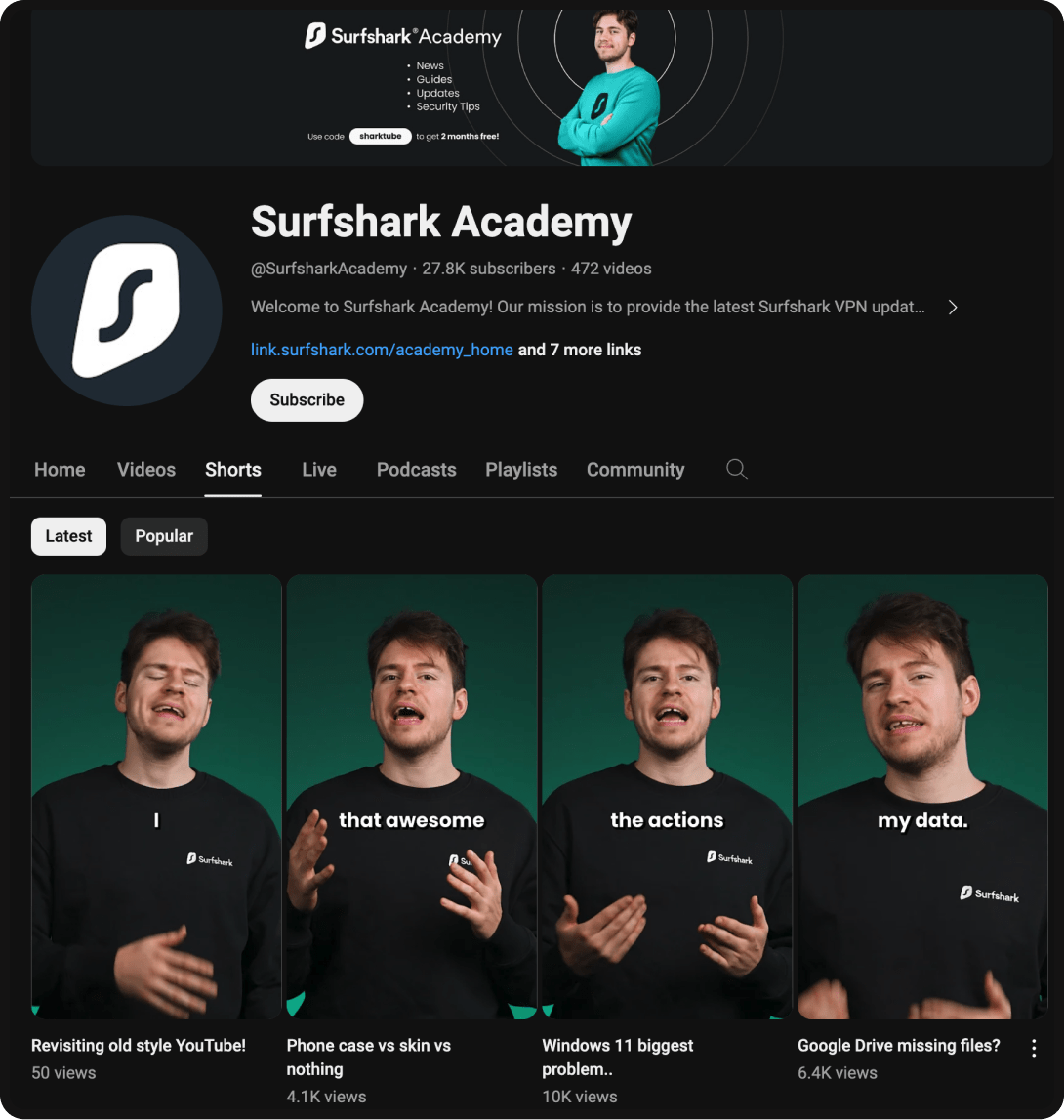
Surfshark is a tech company that sells a VPN service. They also make organic social media posts, covering the latest in the tech niche. By doing this, they’ve become a voice within the tech community; garnering nearly 30,000 subscribers, and having a reach that reliably tallies them 5-10 thousand views a video.
Because they are recognized as a reliable voice within their space, the product they sell within said space gains an added level of authority and trust. And by bolstering their stance within the market, they are also subsequently driving traffic toward their VPN as viewers grow more curious about their entity.
Establishing Your Brand on YouTube
If you decide to take the organic route with your brand, you need to make sure your brand identity is easily perceived. So in the initial stages, you are going to want to dedicate some time towards creating channel art.
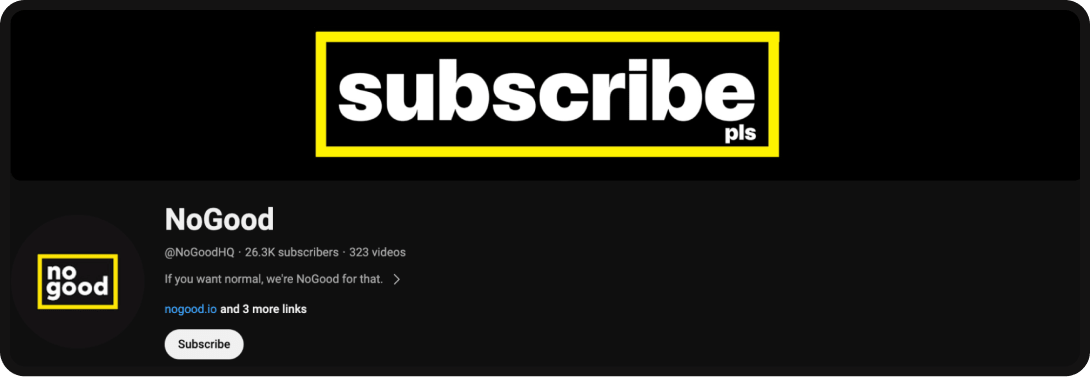
This includes creating a profile picture and banner image. This is an important step for social media profiles, regardless of intent or purpose… but especially on YouTube, among the sea of other brands and creators, you’re going to need a way to stand out.
Once you have your channel icon and banner set, you should additionally create a channel description.
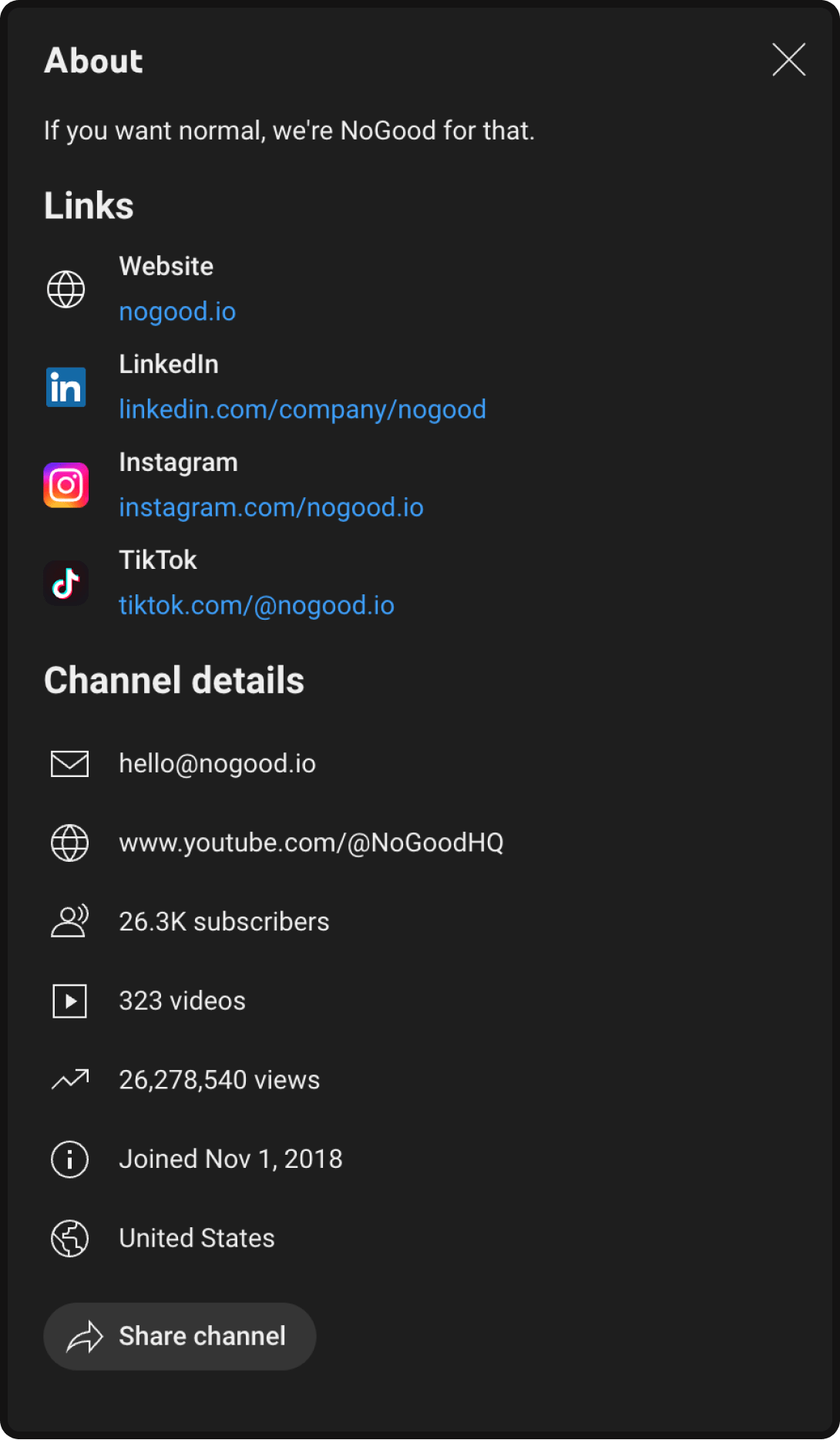
Your description doesn’t have to be super elaborate, but you should utilize this section to place links to your brand’s other social channels. Not only because doing this will help grow your brand’s other social media channels, but YouTube – being made by Google – is subsequently the world’s second-largest search engine.
This means that the more you give YouTube (Google), the more visibility your brand gains in search.
Ready to boost your YouTube success?
Organic YouTube Tips & Tricks
With your brand visuals established, you now need to determine your brand’s place on the platform by determining your target audience. You want to do this before you invest time into creating high-quality content.
Using our example with Surfshark once again, their brand operates within the tech space, so they make general tech content. Do some competitor analysis, too, not just because they are your competition, but because competitor channels may help you springboard your brand’s content.

Once you’ve aligned with your target audience, you should have a better idea of the type of video and video topics you should be creating in order to drive traffic.
So… how do you create the videos?
Creating Organic YouTube Content
While we won’t dive into the best editing practices and how to create a popular video, as the requirements vary between niches, the big thing we need to do here is set the video up for success on the backend.
Utilizing YouTube SEO (search engine optimization) and leveraging SEO tactics is incredibly important for this marketing strategy to succeed, and it all starts on the upload page.
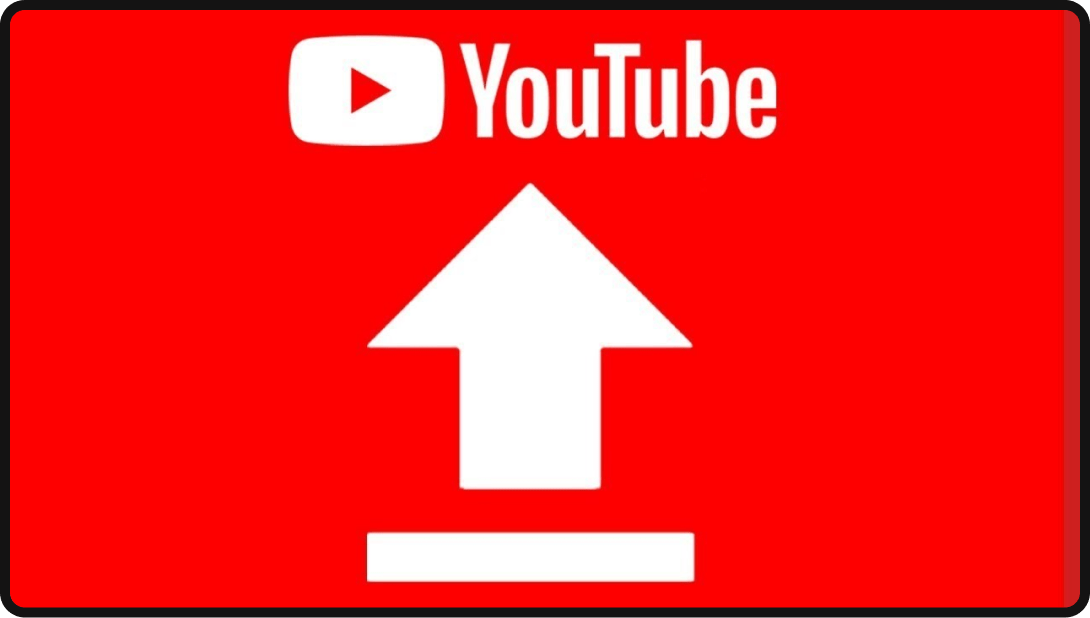
Think of YouTube as a search engine… because it is quite literally built by the same team that runs the largest search engine in the world, Google. As such, it functions very similarly.
Tags
So when you go into the YouTube Studio to upload your video, you want to start by creating a list of relevant keywords with good search volume – things that, when a viewer looks up, you want your video to appear for. These will be your tags.
We highly recommend using Rapidtags as a springboard for this process, as it’s a great analytics tool for generating tags and long-tail keywords (though you should still prioritize shorter tags, especially because of features like voice search).
Here is an example of the tags from one of our videos:
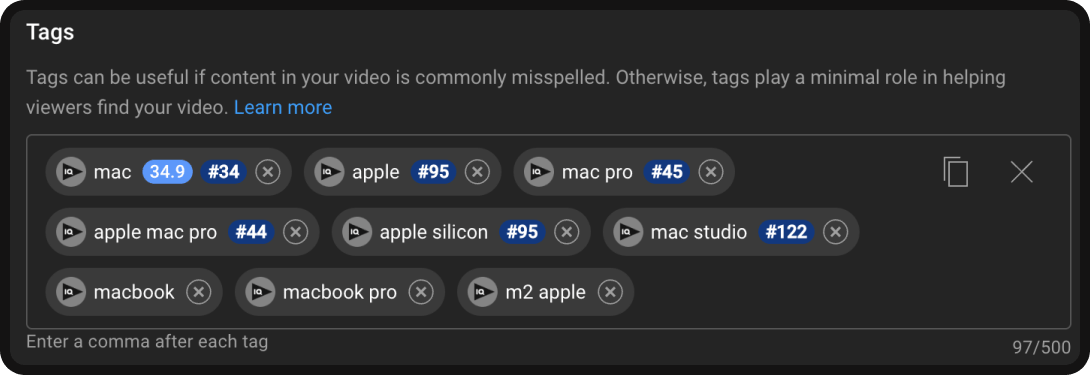
Description
Once you have your tags, you’re going to move on to the video description. The description of your video works in tandem with the tags in order to boost your content, so it’s important to fill this out. The best practice here is to do keyword duplication.
Here’s what that looks like using the tags above:
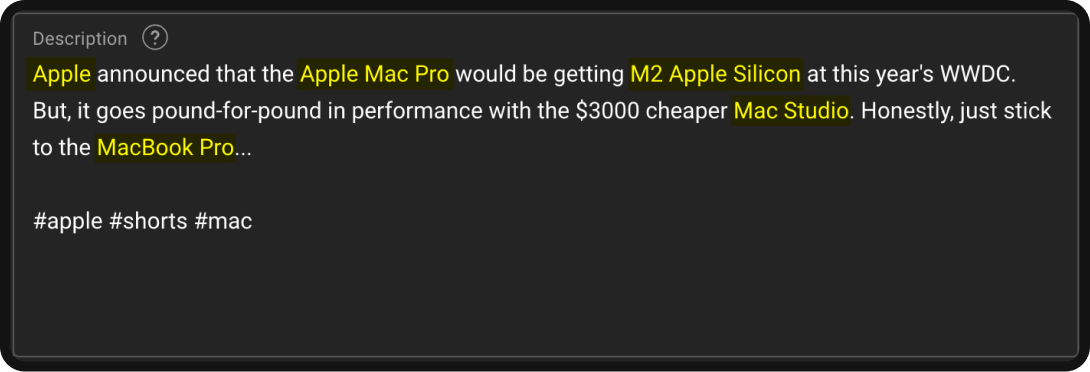
Having your tags in the description of your video will boost your video’s performance with your chosen keywords within YouTube’s algorithm.
You also see that we utilized hashtags. These are great, as they help YouTube’s algorithm decipher what your video is about and serve it to an audience that is more likely to watch. That said, you don’t want to spam your description with hashtags… YouTube recommends a maximum of 3 per video.
Title
Once you’ve done all of this, it’s now time to choose a title for your video!

Some may argue that doing video titles last is… kinda backwards? However, the reason for this order of operations is so that we can leverage our tags and description to pick the perfect title, as you want your title to also include your tags.
That said, it’s a delicate balance. You want to try to include as many tags as you can while still creating compelling video titles.
And once you’ve done that, you’re ready to upload!
…if you’re doing YouTube Shorts.
Thumbnails
If you’re making long-form content, the video format gives you access to video thumbnails which are SUPER important for your video. But they’re also a super case-by-case thing stylistically and can really boil down to the individual videos themselves.
Though you still want to make sure that you’re not just flying by the seat of your pants here…
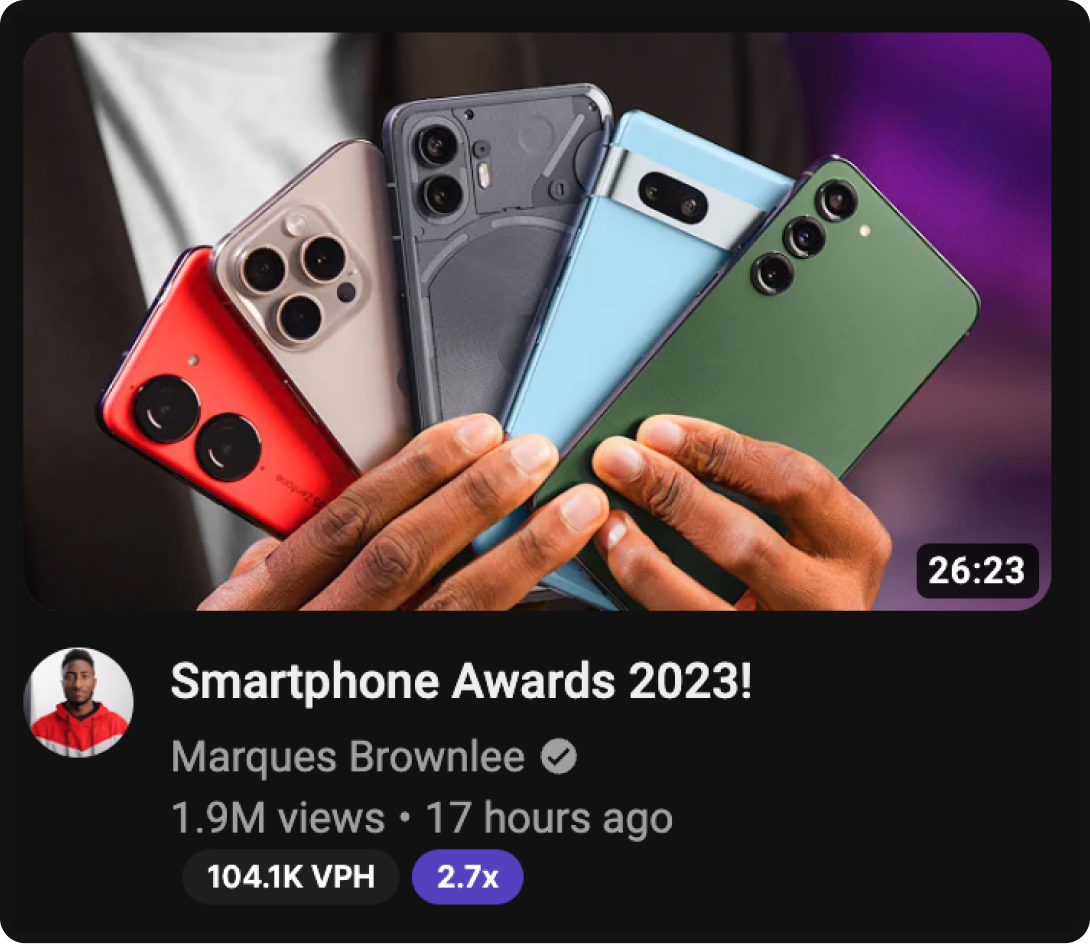
This is a good video thumbnail. But why??
It does the two things every thumbnail needs to do, regardless of style. It has a center-point of attention: the phones. And it correlates with the video title.
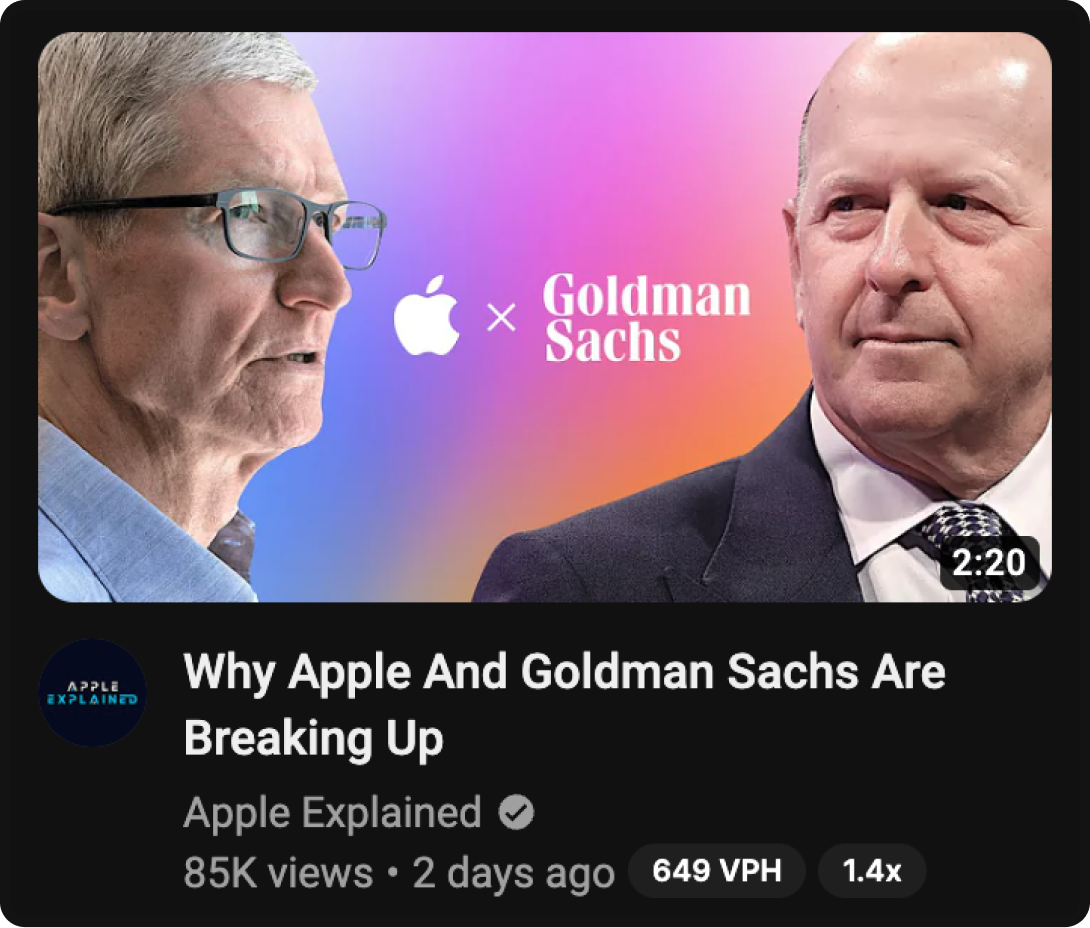
Here is another example of a good thumbnail, this one using text as the center-point.
Again, every niche will be a little bit different… but as long as you accomplish these two things with your thumbnail, it won’t directly hinder your video – and may even help your video’s engagement rate!
YouTube Posting Times
Now that you have everything from your title and descriptions to your tags and thumbnails down, you’re ready to post! But before you go upload your video, check the time.
It’s very important to post when there are a lot of active users online, that way you maximize your videos initial growth potential. A good rule of thumb here is to post between 2 to 6 PM (EST).
YouTube Marketing Best Practices
Once you have the backend down, it becomes a game of consistency and video quality. Your brand needs to maintain an upload schedule that sees uploads on a regular basis; 3-5 videos a week typically is the sweet spot to maximize growth.
You can create a content calendar to visualize this process a little bit better.
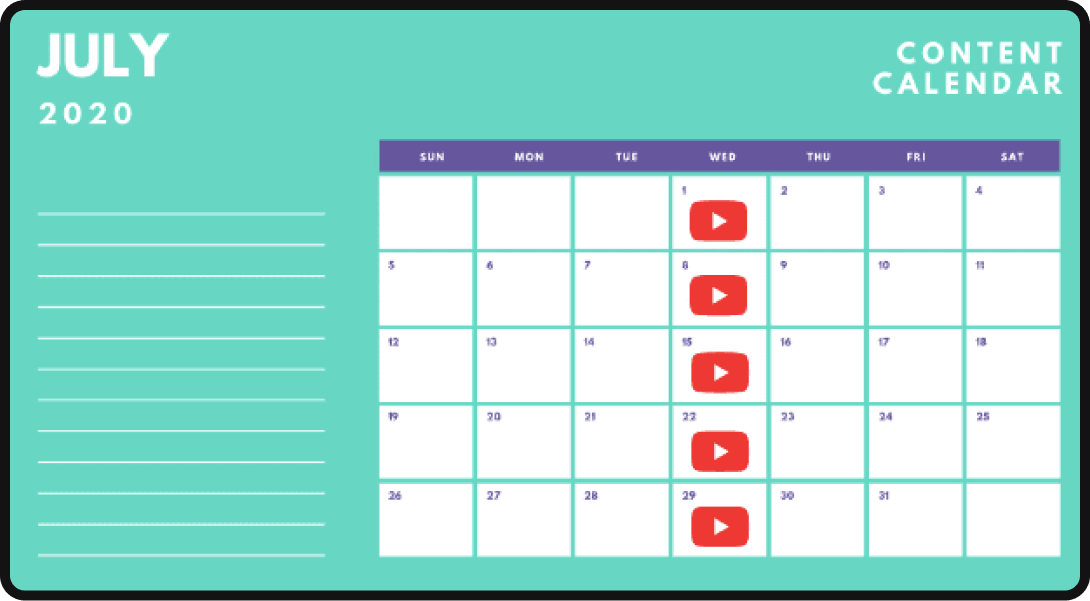
Maintaining this upload frequency should eventually see your video views roll in as your audience size balloons and you position your brand as an authority within your space.
Additionally, make sure you keep a close eye on your YouTube analytics. YouTube’s video analytics tools can be used to determine trends with your audience engagement, and further formulate your content strategy.
Some key metrics you should consider are watch %, scroll/click-through rate, along with general likes, dislikes, and views. These metrics should improve as you continue to refine your video production and overall online video content.
Driving Traffic
While organic content typically won’t yield direct sales for your brand, there are still a few things you can do to be a little more product-forward without diminishing the organic strategy.
To further bolster your brand, you can create a channel trailer!
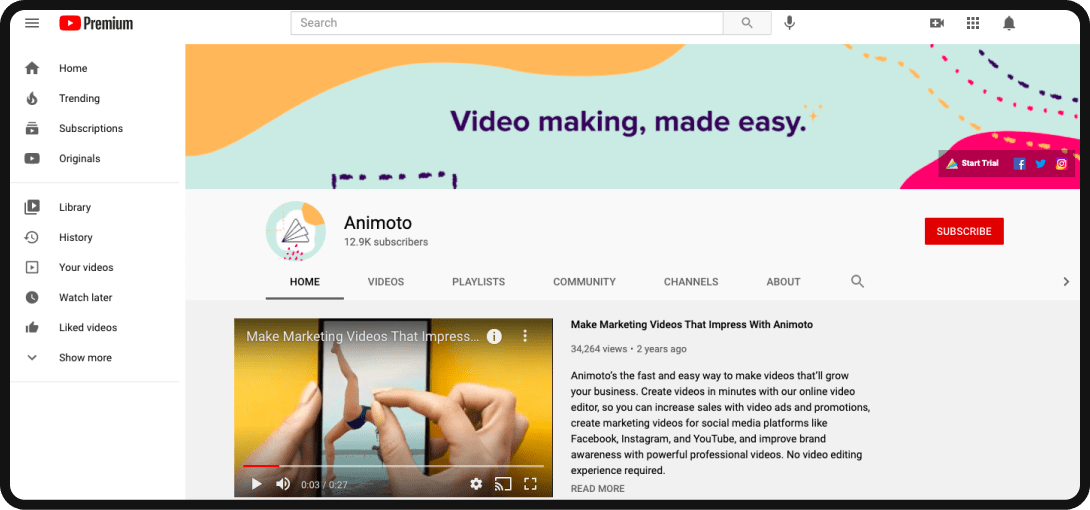
This video will appear whenever people, random viewers or channel subscribers, visit your brand’s channel.
So, if after watching one of your videos, a viewer is intrigued and wants to view more of your content, they will first be met with this video, which can be a little more brand/product-forward.
You can use this feature as a way to leverage an educational content piece on your brand to potentially direct more traffic to your brand off-site.
Organic Content: Brands Beware
As we briefly mentioned earlier, this is a type of YouTube marketing strategy that yields a very specific result. If leads and purchases are in the backseat, and you’re trying to generate a brand voice within your niche… organic content is great!
But if you want to use YouTube marketing to drive purchases… chances are an organic content approach will not accomplish that – in most cases, the only way your brand will drive direct profit from an organic strategy is through YouTube monetization.
However, that doesn’t mean that YouTube marketing isn’t for your brand!
There are still two other approaches we haven’t covered…
Ad Content on YouTube
Have you ever seen an ad on YouTube? If you haven’t… please share your secrets with the class.
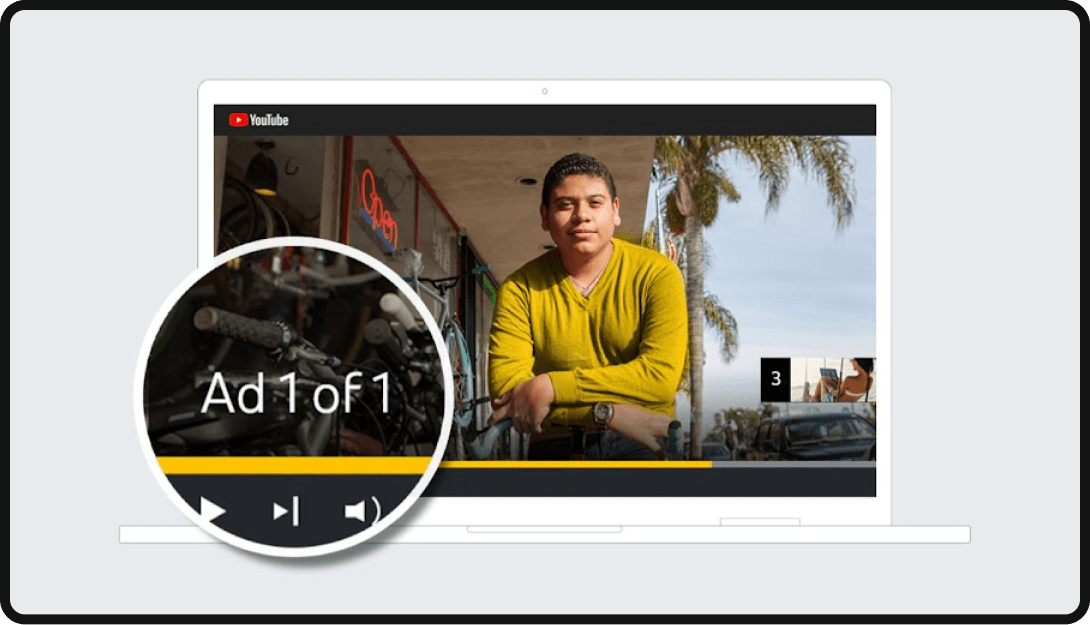
That ad could be your brand, though, as YouTube allows businesses and brands to run video ads on their platform. Unlike the organic content strategy, though, this does cost money.
YouTube ad pricing is broken down by CPM (cost per thousand views). It varies on a case-by-case basis, but CPM for YouTube ads ranges between $4 and $10 per thousand views.
This means that for potentially just $4, you could place your product in front of 1,000 potential customers!
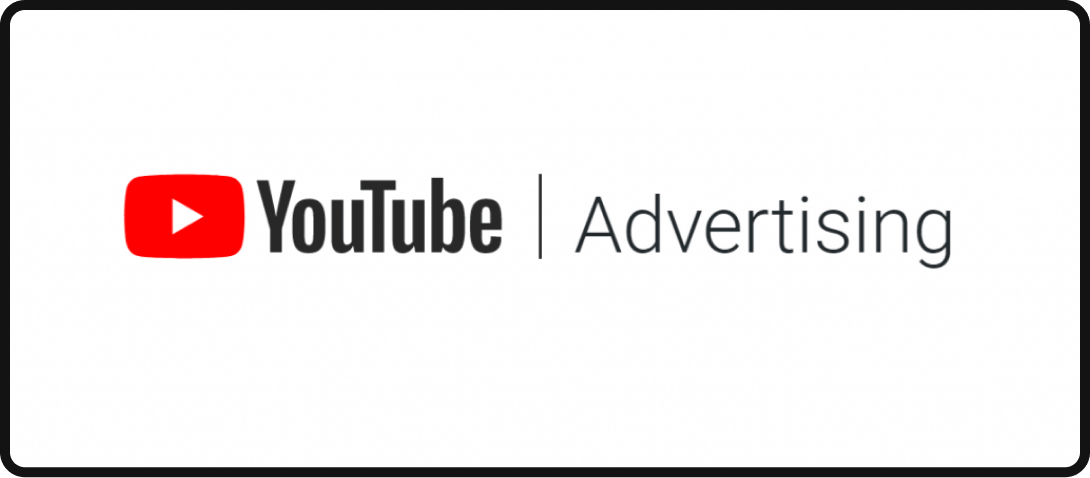
For brands looking to drive traffic to their products, YouTube advertising can be an incredibly lucrative investment. But there is a downside to it, as your ad might not be served to 1,000 people who are within your audience demographics.
This is why some companies opt to go in a slightly different direction with ad content…
Influencer Marketing on YouTube
There are thousands of creators on YouTube that pull in millions of views every month, with extraordinarily dedicated and loyal audiences behind those numbers. And these creators are, more often than not, open to the idea of collaborating with brands.
When you find a creator within your brand’s niche who you’d like to partner with, you can go about the partnership in a few ways.
Sponsored Segments
Some creators will offer to dedicate a part of their video to your product, similar to customer testimonials…
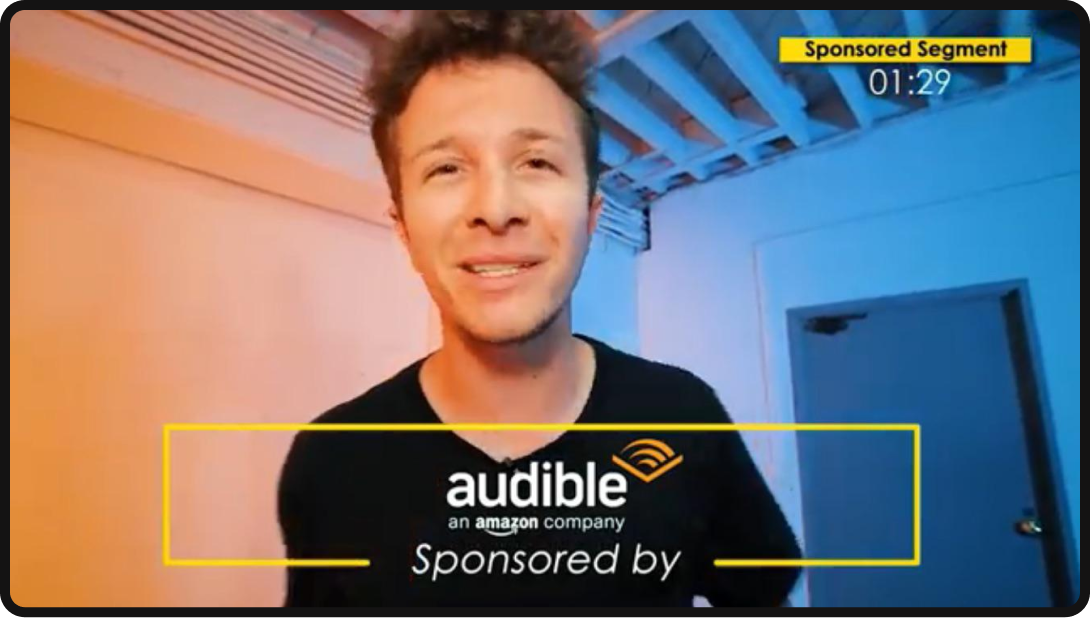
Your brand can provide the creator with a script for this segment that details what you do/what you are trying to advertise.
Sponsored Videos
Other creators may offer to do an entire video on your product, similar to a customer review.
Sponsored videos will typically come in the form of a “product review” and will subsequently give you a little less control over the final product of the video. However, if you partner with the right creator and they like your product, this form of influencer marketing can pay massive dividends.
Influencer Marketing Costs
Although this could become the most lucrative form of advertising for your brand’s product, it could also become the most expensive.
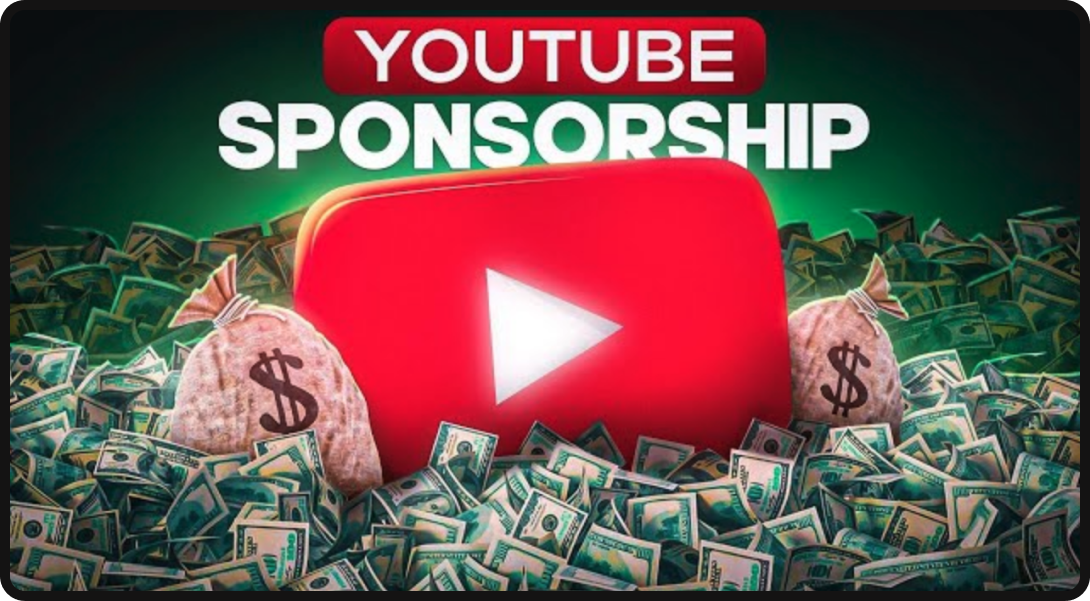
Virtually every creator will have a different rate, factoring for things like their subscriber count, current viewership, etc. If your brand initiative is on the smaller end, you may not be able to go after the bigger fish in the creator sea.
But that doesn’t mean that you can’t accomplish great results working with a smaller creator!
It’s also very important to be intentional about the creator you choose to align your brand with. Smaller creators may not pull massive viewership, but their audience may align with your product better than the bigger creators.
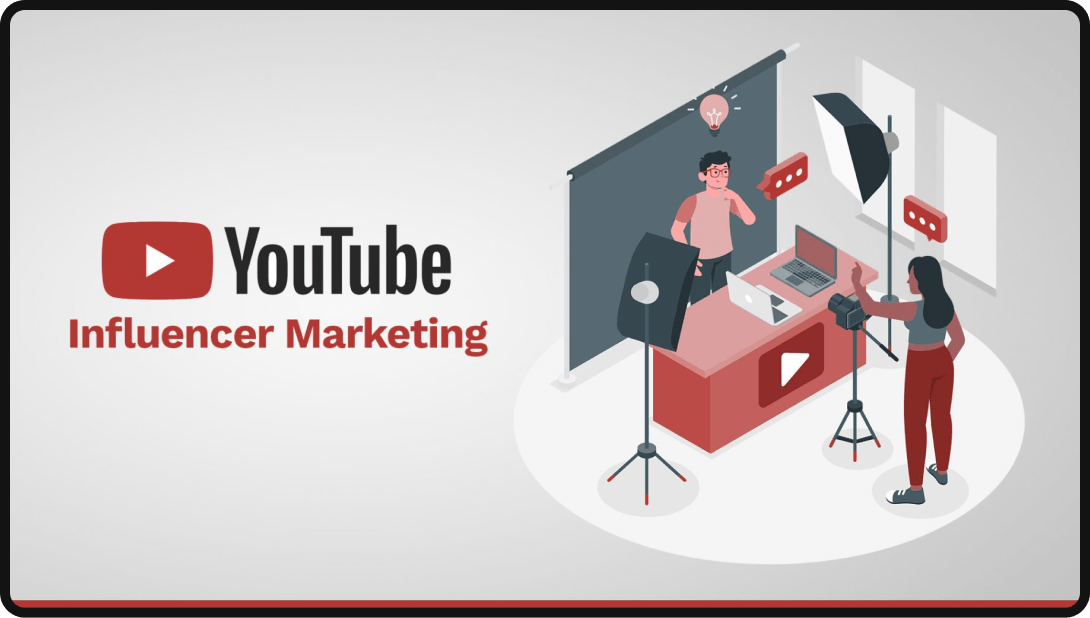
There will certainly be some risk/reward assessment associated with your influencer marketing strategy, but it’ll prove to be worth it in the end once you find that perfect creator!
YouTube Marketing
YouTube is an incredibly powerful tool for your brand; you just need to make sure you are leveraging it in the way that best fits your brand.
This isn’t a cookie cutter platform for brands. Some strategies will work better for your brand than it will for others, and vice versa. In the end, it’s all about experimentation. But experimentation is nothing without having a ‘why.’
Examples of Brands Doing YouTube Marketing Right
Surfshark: As mentioned above, Surfshark with ‘Surfshark Academy’ is a great example of a brand with an organic content strategy. They are creating daily short-form content centered around tech, and are growing by a few thousand subscribers every month!
Culligan: Employing a YouTube marketing strategy that leverages both organic short-form content and paid ad content, Culligan is quickly carving out a platform on YouTube within their niche.
Mint Mobile: While Mint Mobile’s marketing strategy is heavily reliant on YouTube ads, their ads are incredibly iconic. Featuring Ryan Reynolds as their spokesperson lends to a light-hearted, less “in your face” advertising strategy that resonates well with the viewe
The 5 Keys to YouTube Marketing Success

Consider YouTube’s role in your marketing strategy. Are you trying to create a brand voice? If so, your brand’s marketing strategy will be different than the brand that is trying to drive direct purchases through YouTube.
Find your target audience. Regardless of whether you choose organic content or influencer/ad content, you need to have an idea of where your brand fits within YouTube’s landscape.
Leverage the platform. YouTube gives brands a lot to work with in order to grow their initiative. Don’t stop your research at this article.
Get involved. Align your brand with the culture of the community you are trying to market towards.
Don’t box your brand in. You don’t have to limit your brand to one of these traffic sources. In fact, consider each of them… you never know what might work!






